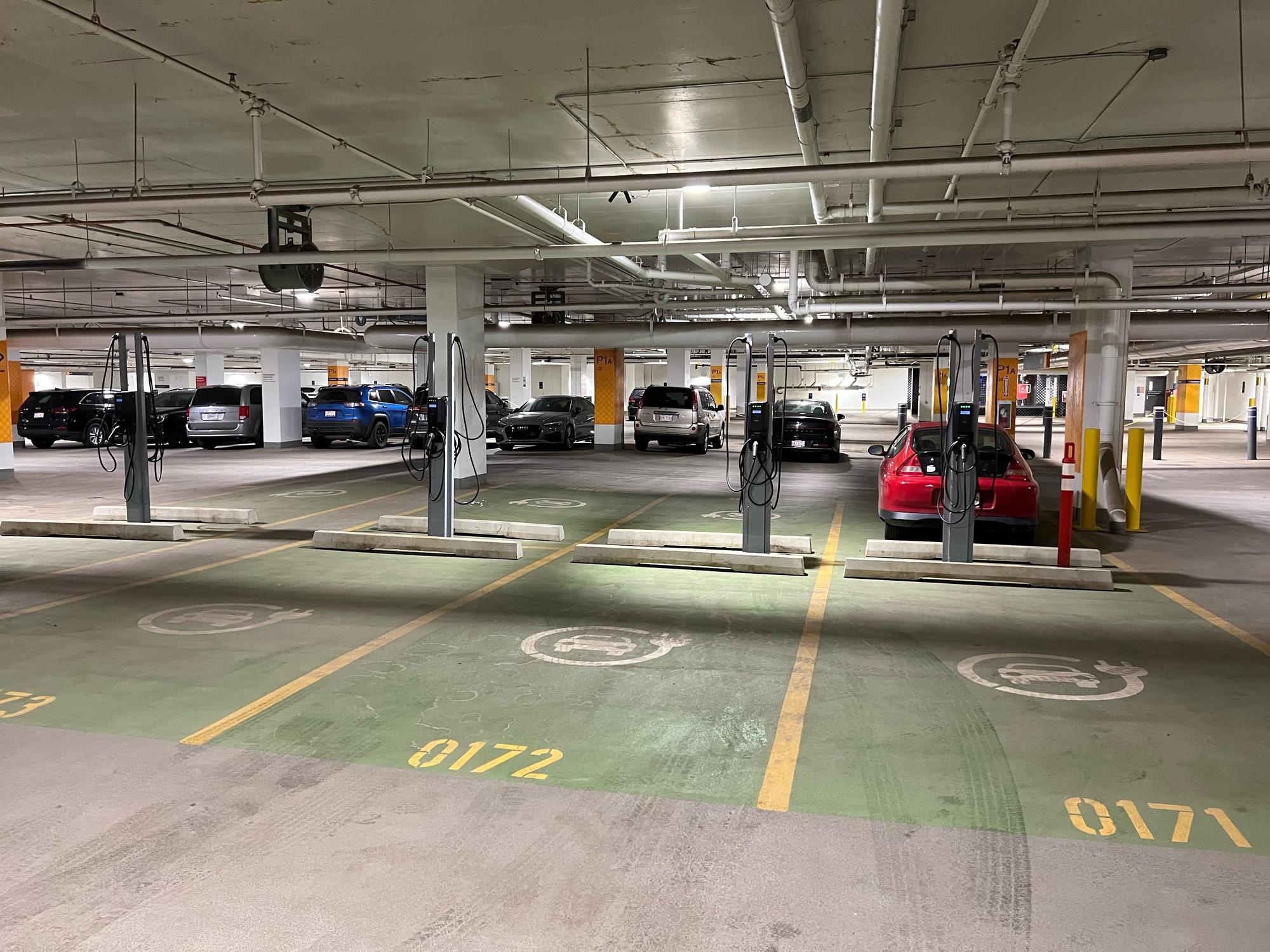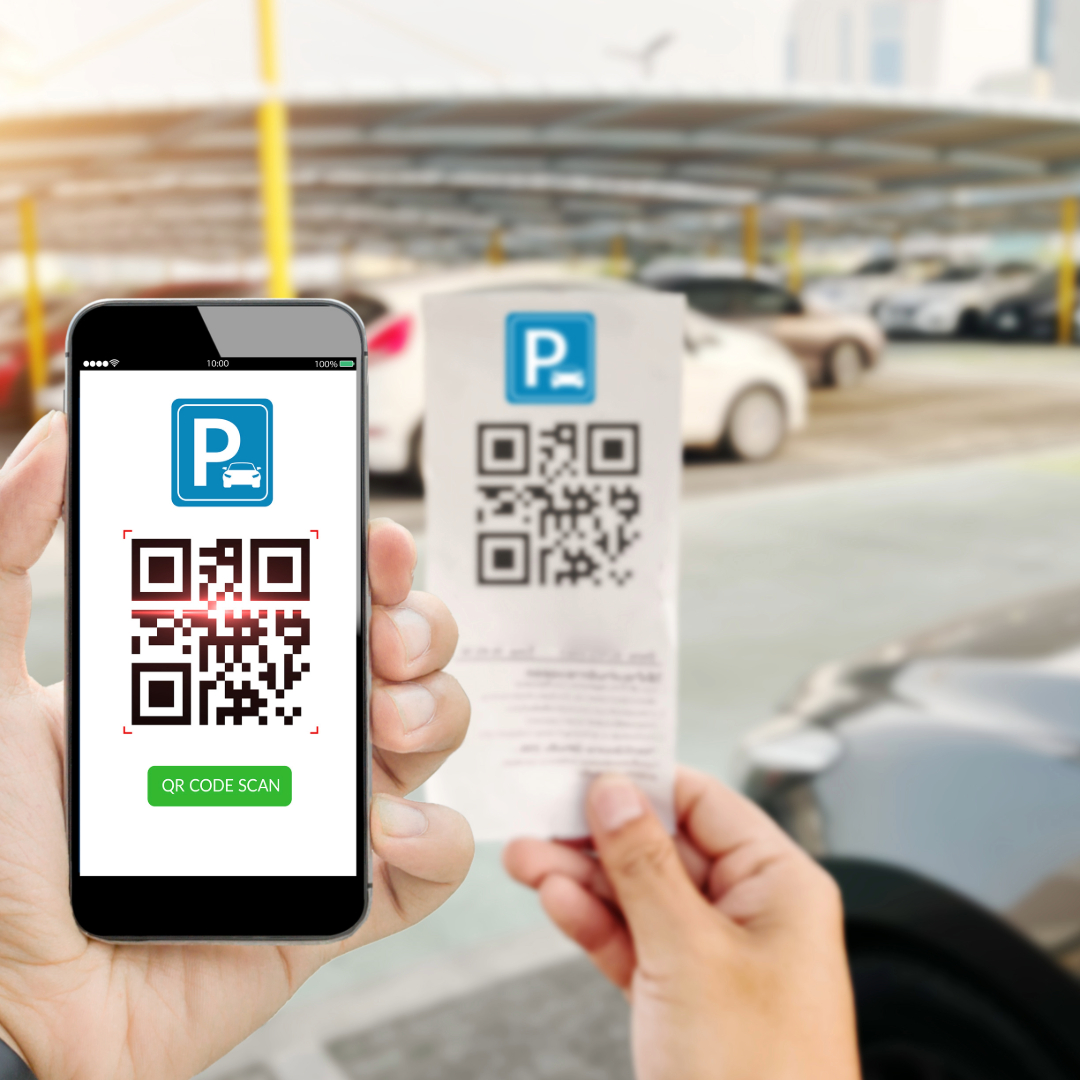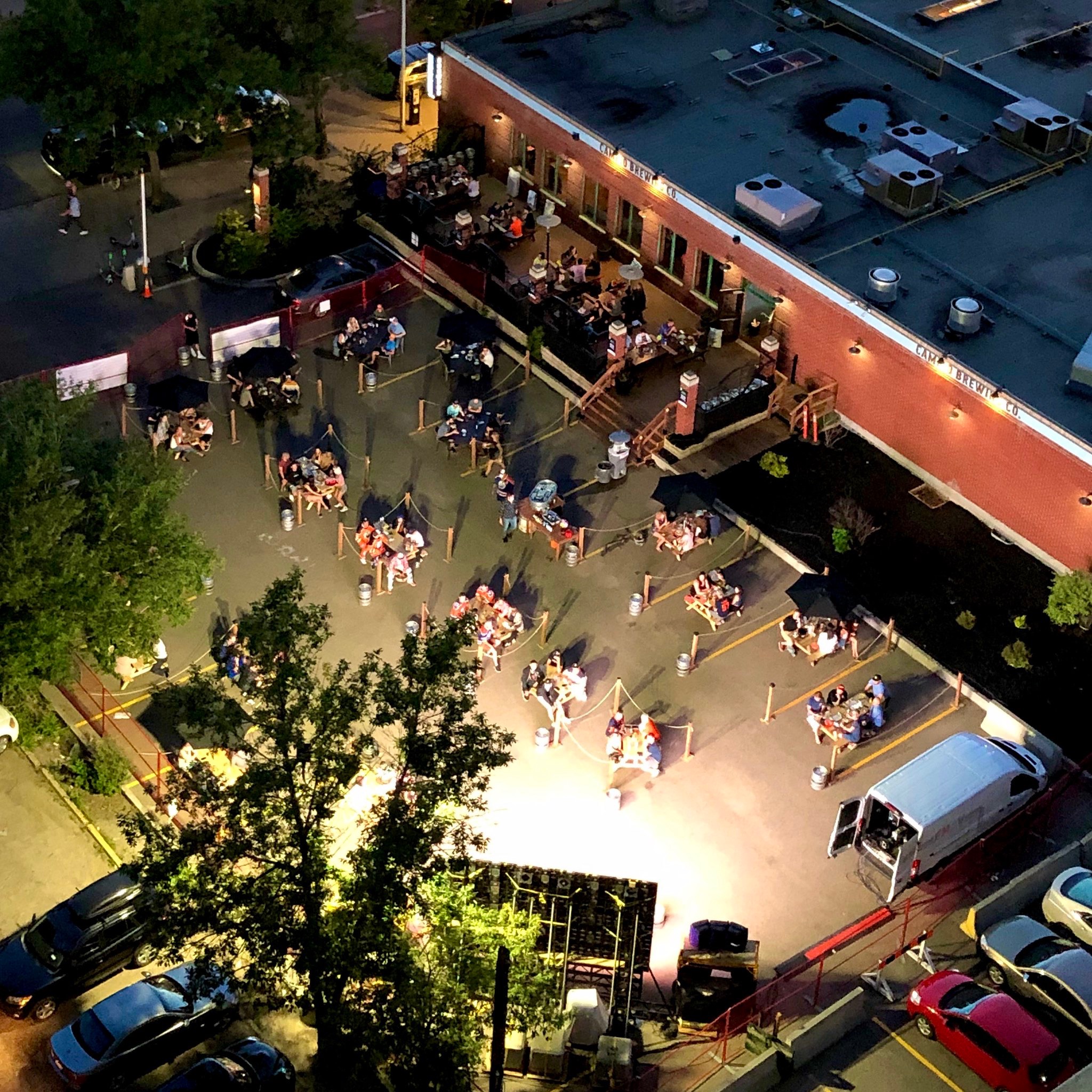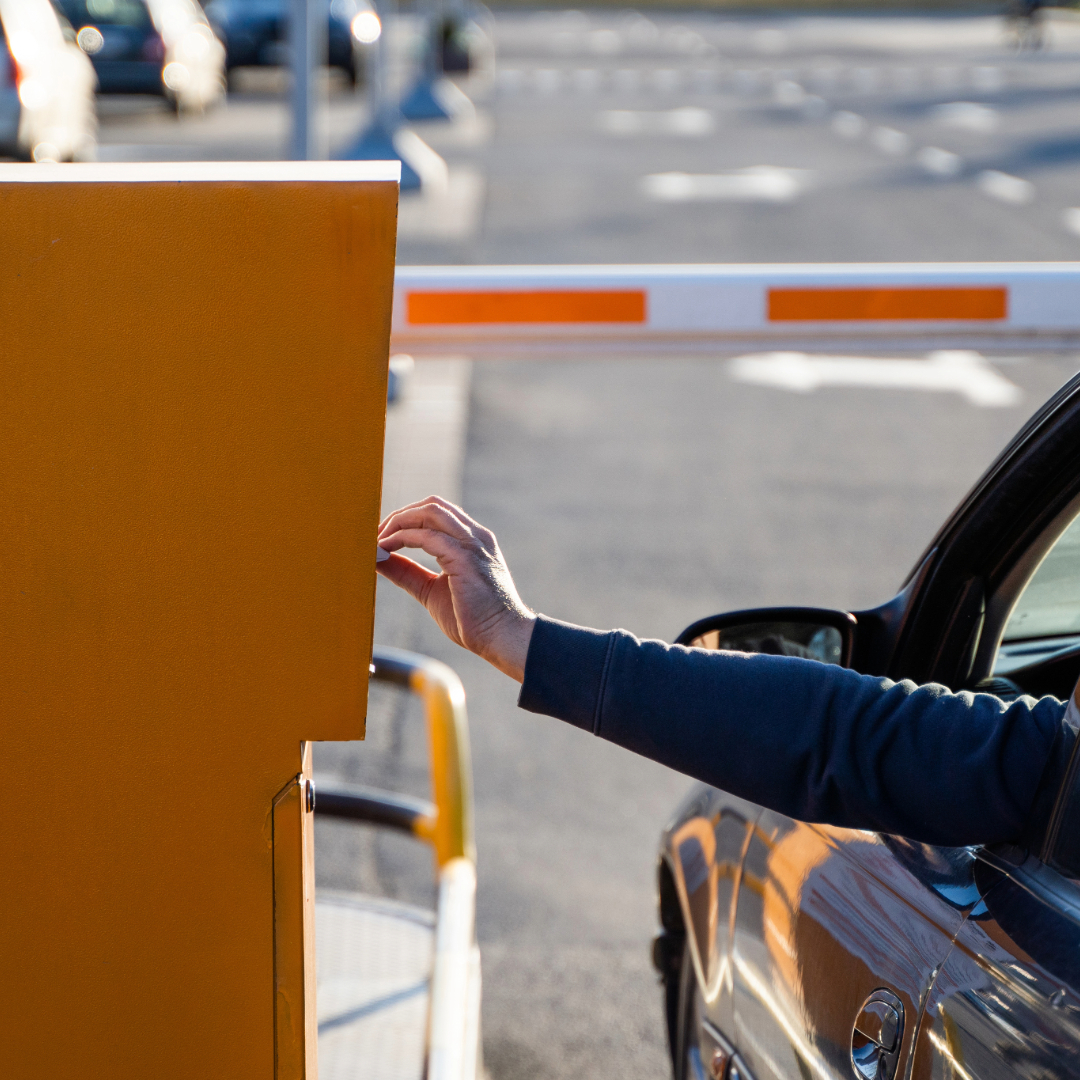Parking lots have long been a staple in municipalities, providing a convenient place for people to park their cars while they go about their daily activities. Parking is intricately intertwined with the way we acquire goods and services and move people from point A to point B. With the rise of technology and changing consumer behaviors, the future of parking lots is evolving. Here we will explore some of the trends that are shaping the future of parking lots.
Bylaw Changes
The City of Edmonton was the first major Canadian municipality that removed parking minimums in 2020. By removing parking minimums, it will not only reduce the cost commercial buildings and residential developments and it will also encourage residents to find alternative modes of transportation such as walking, cycling or transit. The goal is that we become more intentional with the available space and maximize the development. The cost of parking for businesses is often incorporated into the cost of the goods or services being paid for at that business. We are seeing more shared parking spaces and flex spaces which help offset the cost of parking for the business owner and residents.

Ice District Parkade located in Edmonton, Alberta.
Hybrid Work Model
The hybrid work model makes it harder to predict when your employees will need parking space. Parking management software can assist with real time parking space availability for employees. Parking software will also help manage multiple schedules making the most of your parking and office space.
Shift in Consumer Behavior
Ride sharing, Uber, Lyft, Instacart, online ordering are all excellent examples of how goods, services and people are transported thus making people less reliant on their personal vehicles. Drop off and pick up zones in parking lots are in high demand (for some business models) and some areas could see a drop in demand for parking. These behavioral changes should be incorporated into the parking lot civil design.

Grocery delivery is making us less reliant on our personal vehicles to acquire goods and services.
Electric Vehicle Charging Stations
With the increasing popularity of electric vehicles, parking lots are starting to incorporate charging stations into their parking lot design. This not only provides a convenient service for electric vehicle owners but also attracts more customers to the parking lot. In addition, some parking lots are now offering dedicated parking spaces for electric vehicles.
Mobile Payment Options
Gone are the days of fumbling for change or waiting in line to pay for parking. Many parking lots now offer mobile payment options, allowing customers to pay for their parking spot using their smartphone. This not only makes the process more convenient for customers but also reduces the need for physical payment machines, saving space and maintenance costs for parking lot owners. In addition to paying online, many parking lot owners are offering a reservation system in which you can pay in advance. The customer can confirm in advance of arrival that there is an empty parking spot and reserve that parking space for an allotted time. Many parking lots near Rogers Place in Edmonton, Alberta offer online parking reservations in advance of an event.

Parking reservation and payment system.
Dynamic Pricing Models
Mobile and digital parking lot reservations systems allow for dynamic and competitive pricing models to increase your revenue. Similar to VRBO and Airbnb, the pricing model is generated by an algorithm based on the supply and demand for parking at that specific time slot and location.
Autonomous Vehicles
It is estimated that 50% of kilometers travelled will be autonomous vehicles by 2040 (source). Along with e-scooters and bike-sharing, the demand for traditional parking will decline (i.e. parking your car for an entire day while at work). Autonomous vehicles will also likely increase the demand for drop off and pick up parking zones and parking management systems.
Green Initiatives
As sustainability becomes a top priority for many individuals and businesses, parking lots are also starting to incorporate green initiatives. This includes using solar panels to power lighting and electric vehicle charging stations, implementing rainwater harvesting systems, and using permeable pavement (in warmer climates) to reduce stormwater runoff. These initiatives not only benefit the environment but also help parking lot owners save on energy costs.
Flexible Mixed-Use Parking Lots
Traditionally, parking lots have been used solely for parking cars. However, with the rise of urbanization and the need for more efficient use of space, mixed-use parking lots are becoming more popular. These parking lots combine parking spaces with other amenities such as retail stores, restaurants, and even residential units. This not only maximizes the use of space but also creates a more vibrant and convenient environment for customers.

Campio Brewing Co. parking lot located Downtown, Edmonton has been converted to a permanent patio.
The Rise of Online Parking Marketplaces
With the increasing popularity of online marketplaces for goods and services, it's no surprise that the parking industry is also following suit. Online parking marketplaces allow individuals and businesses to rent out their unused parking spaces (cue Airbnb), providing a more affordable and convenient option for customers. This mutually benefits parking lot owner and other small business owners (i.e. food trucks) as they can generate additional income from their unused spaces.
As we can see, the future of parking lots is changing rapidly, with technology and sustainability playing a significant role. By staying up to date with these innovations and trends, civil engineer designers and business owners alike can ensure that their business remains competitive and the parking lot design is relevant in the ever-evolving parking industry. If you are looking for experienced civil engineering company to guide you through a parking lot development in Edmonton and across Alberta, be sure to engage with Bolson Engineering and Environmental Services. We will be happy to consult with you as your trusted engineering partner.

